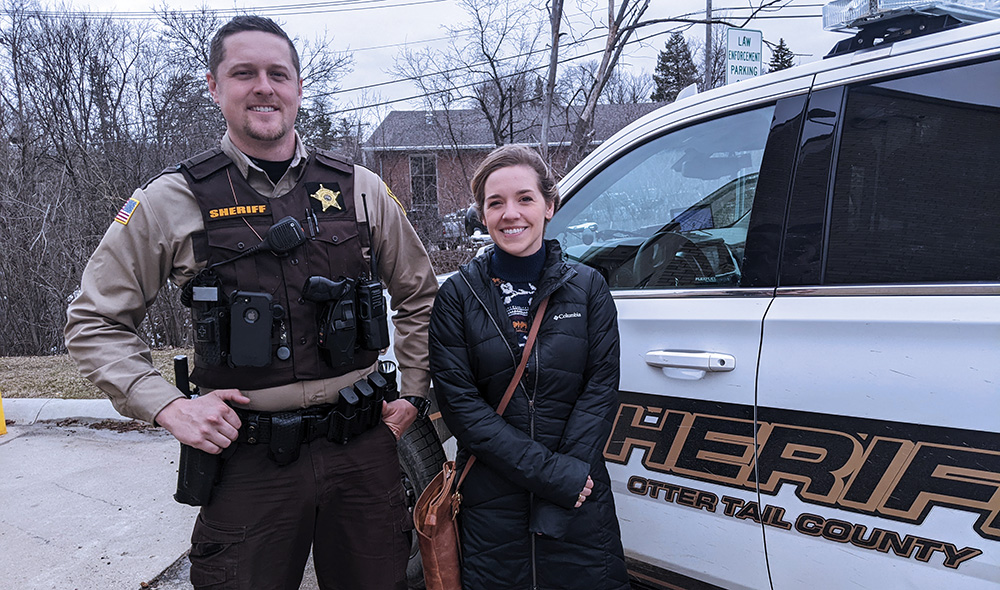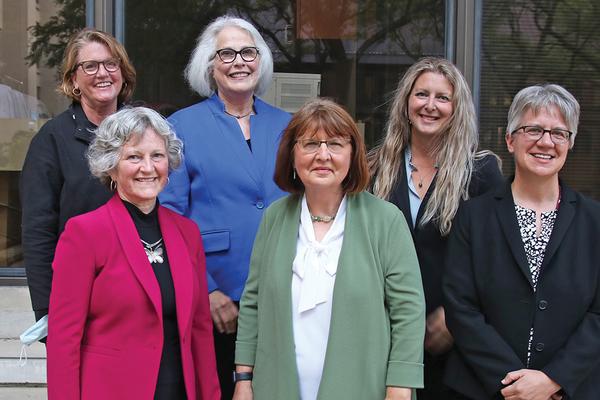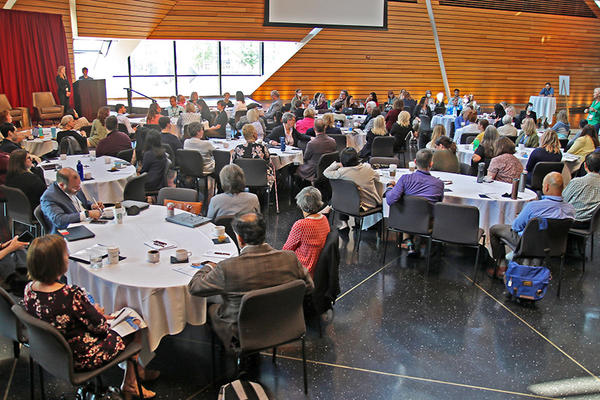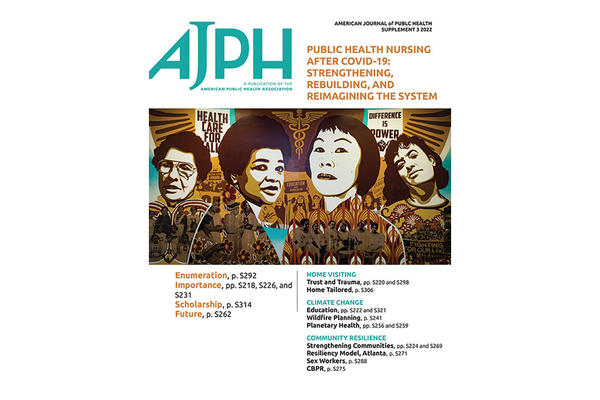Seeing mental health through a different lens
School partners with law enforcement for clinical experiences in rural Minnesota
October 25, 2022
Brett Stursa

Sheriff Deputy Colby Palmersheim and DNP student Nicole Hoffman during her ride along in Otter Tail County.
An innovative learning strategy for students in the Doctor of Nursing Practice psychiatric mental health nurse practitioner specialty is giving them a better understanding of the intersection between mental health and law enforcement in rural communities.
Students in the pysch mental health specialty are required to complete a 40-hour rotation in rural Minnesota. Their clinical experiences have traditionally included community health clinics or private practice. Recently, their clinical experiences began including ride alongs with police officers and other law enforcement activities.
“Most of our students come from an inpatient practice setting, so this community experience has really opened their eyes to the resources available, and to the barriers and challenges,” says Professor Emeritus Merrie Kaas, PhD, APRN, PMHCNS, FAAN, who’s the principal investigator of a Minnesota Department of Health grant to ensure students are better prepared for rural practice. “I think students are more aware of their responsibility of being a provider in a rural area.”
The school’s partnerships with police departments and sheriff’s offices are giving DNP students an opportunity to learn from experiences with law enforcement, whether it be responding to calls, in jails or through probation. Currently the school has partnerships with the Willmar Police Department and the Otter Tail County Sheriff’s Office.
“It allows them, as up and coming practitioners, to deeply think about patient-centered care when they see all these different interactions that a patient could have in their life. If they can also interact with those other entities so that the patient can have optimal care, that’s what we want. That’s what we all want,” says Laurissa Stigen, MS, RN, DNP clinical placement coordinator.
Ellie Rizor, DNP, who stayed for a week in Willmar, Minnesota for her rural rotation, says she was initially confused about being paired with law enforcement. “Then I thought about it, and as an in-patient nurse, we have police come to drop patients off or when there is an assault on the unit. So I was interested to see their experience and what they are seeing on the streets. It’s different than what we see when we have patients with us,” says Rizor, who graduated in May.
Rizor said her ride along with a Willmar police officer was quiet, but interesting. “We talked about how he decides whether to take someone to the hospital or to jail. It was interesting to hear his side of it and to hear from him how hard it is to access mental health services there,” says Rizor. “It made me feel more connected to my community officers here.”
As a child and adolescent care provider, she knew the value of community partners, like schools and teachers. But the experience taught her police departments are important partners too. “They could use the help and I could use the help,” says Rizor.
Willmar Police Chief Jim Felt says these types of conversations and realizations are why he didn’t hesitate to partner when asked. “In talking with the officers, we deal with so many mental health types of calls every day. We thought this would be a great opportunity. We can learn from students, and the students can see what’s happening from our perspective in dealing with mental health on the street,” says Felt. “We need better strategies for dealing with people who suffer from mental illness.”
During Nicole Hoffman’s clinical experience with the Otter Tail County Sheriff’s Department she got to witness how great the health care needs are in jail. “The nurse was doing the best she could, but it looked like the needs were greater than what she could provide,” says Hoffman, MN, RN.
During a ride along with a sheriff’s deputy she heard about how common mental health calls are in the community and the toll they take not only on the person experiencing them, but on responders as well.
“Their lives are so different than mine but we’re all the same,” said Hoffman. “It was an invaluable experience for me that gave me a better understanding of the struggles outside of the world I know.”


